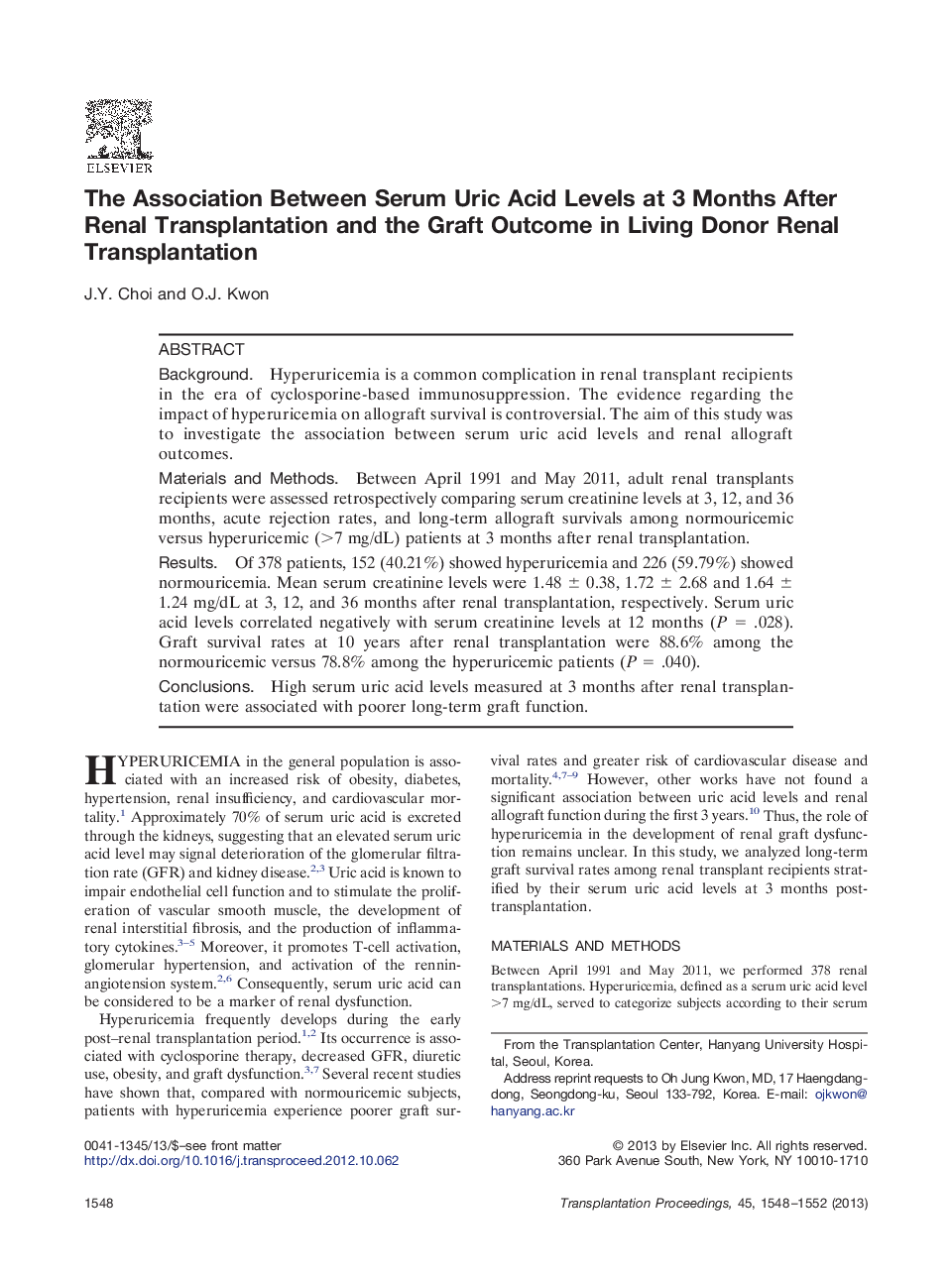| Article ID | Journal | Published Year | Pages | File Type |
|---|---|---|---|---|
| 4257317 | Transplantation Proceedings | 2013 | 5 Pages |
BackgroundHyperuricemia is a common complication in renal transplant recipients in the era of cyclosporine-based immunosuppression. The evidence regarding the impact of hyperuricemia on allograft survival is controversial. The aim of this study was to investigate the association between serum uric acid levels and renal allograft outcomes.Materials and MethodsBetween April 1991 and May 2011, adult renal transplants recipients were assessed retrospectively comparing serum creatinine levels at 3, 12, and 36 months, acute rejection rates, and long-term allograft survivals among normouricemic versus hyperuricemic (>7 mg/dL) patients at 3 months after renal transplantation.ResultsOf 378 patients, 152 (40.21%) showed hyperuricemia and 226 (59.79%) showed normouricemia. Mean serum creatinine levels were 1.48 ± 0.38, 1.72 ± 2.68 and 1.64 ± 1.24 mg/dL at 3, 12, and 36 months after renal transplantation, respectively. Serum uric acid levels correlated negatively with serum creatinine levels at 12 months (P = .028). Graft survival rates at 10 years after renal transplantation were 88.6% among the normouricemic versus 78.8% among the hyperuricemic patients (P = .040).ConclusionsHigh serum uric acid levels measured at 3 months after renal transplantation were associated with poorer long-term graft function.
